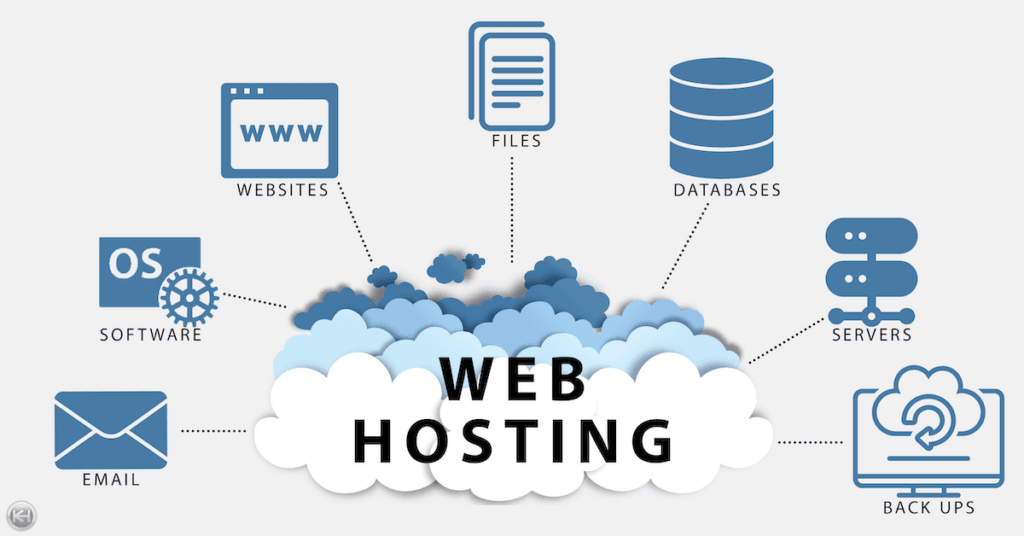Introduction
In today’s digital age, having an online presence is essential for businesses of all sizes. Whether you’re a small start-up or a large corporation, having a website is crucial for reaching customers and growing your brand. But before you can create a website, you need to have a domain and hosting service in place. In this article, we’ll explore what domain and hosting services are, why they are important, and how you can choose the right provider for your needs.
What is a Domain?
A domain is the unique address that visitors use to access your website on the internet. It serves as the online identity of your website and helps users easily find and remember your site. A domain typically consists of a name (such as www.example.com) and an extension (such as .com, .net, .org, etc.). When someone types in your domain name into a web browser, they are directed to your website.
Choosing a Domain Name
When choosing a domain name for your website, it’s important to select a name that is relevant to your business and easy to remember. You should also consider the domain extension that best suits your business needs. While .com is the most commonly used extension, you may also consider other extensions such as .net, .org, or country-specific extensions like .co.uk or .au.
It’s also a good idea to check the availability of your chosen domain name before finalizing your decision. There are many domain registrars online that allow you to search for available domain names and register them for a fee. It’s important to choose a reputable registrar that offers reliable services and good customer support.
What is Hosting?
Hosting is the service that stores your website’s files and data on a server, making it accessible to users on the internet. When someone types in your domain name, the hosting server retrieves your website’s files and displays them on the user’s screen. Hosting is essential for keeping your website up and running 24/7 and ensuring fast loading times for visitors.
Types of Hosting Services
There are various types of hosting services available, each catering to different business needs and budgets. Some of the most common types of hosting services include:
Shared Hosting: In shared hosting, multiple websites are hosted on the same server, sharing resources like storage space, bandwidth, and CPU power. Shared hosting is a cost-effective option for small businesses and personal websites.
VPS Hosting: Virtual Private Server (VPS) hosting provides a dedicated virtual server with its own resources and operating system. VPS hosting offers more control and customization options than shared hosting, making it ideal for businesses with higher traffic volumes.
Dedicated Hosting: In dedicated hosting, your website is hosted on its own physical server, providing maximum performance, security, and customization options. Dedicated hosting is suitable for large businesses with high traffic websites and specific hosting requirements.
Cloud Hosting: Cloud hosting uses a network of servers to host your website’s files, allowing for scalability and flexibility. Cloud hosting is ideal for businesses that experience fluctuating traffic levels and need reliable performance.
Choosing a Hosting Provider
When selecting a hosting provider for your website, it’s essential to consider factors like reliability, performance, security, and customer support. Here are some key points to keep in mind when choosing a hosting provider:
Uptime Guarantee: Look for a hosting provider that offers a high uptime guarantee, ensuring that your website is accessible to users at all times.
Performance: Choose a hosting provider that offers fast loading times and optimal server performance to provide a seamless user experience.
Security: Ensure that your hosting provider offers robust security measures like SSL certificates, firewalls, and regular backups to protect your website from cyber threats.
Scalability: Select a hosting provider that allows you to easily upgrade your hosting plan as your business grows and your website traffic increases.
Customer Support: Opt for a hosting provider that offers 24/7 customer support via phone, email, or live chat to address any technical issues or queries promptly.
Conclusion
In conclusion, domain and hosting services are essential components of creating a successful online presence for your business. A domain serves as your website’s unique address, while hosting stores your website’s files and makes them accessible to users on the internet. Choosing the right domain and hosting provider is crucial for ensuring optimal performance, security, and reliability for your website. By considering factors like uptime guarantee, performance, security, scalability, and customer support, you can select a hosting provider that meets your business needs and helps you achieve your online goals.


